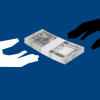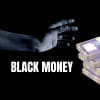Bringing back black money: Will amnesty work at all?

Wishful thinking -- is what best describes the maiden tax amnesty campaign the government is planning to lure money back home next fiscal year.
Bangladeshi citizens who have cash squirrelled away in foreign shores can bring them back home by paying a 10 percent tax, The Daily Star has learnt from finance ministry officials involved with the proceedings.
And those who have immovable assets bought with undeclared income from Bangladesh can legalise those by paying at least 15 percent in tax.
"Lots of money came back to those countries that offered this incentive," Finance Minister AHM Mustafa Kamal told reporters after a meeting of the cabinet committee on purchase on Thursday.
He cited Indonesia as a country that enjoyed great success in its chase for undeclared wealth stashed abroad.
In July 2016, Indonesia provided a nine-month window for its citizens with illegal income parked overseas to declare them at home, pay tax on the sum and avoid persecution.
This was the fourth time Indonesia had tried such a scheme -- in 1964-65, 1984 and 2008 -- with the previous efforts failing for poor incentives.
So the Indonesian government was mindful of making repatriating undeclared wealth somewhat attractive, modelling it on a successful but controversial Italian tax scheme that helped Rome recoup billions of euros unlawfully parked in Switzerland against the payment of a modest penalty.
Those who declared their assets within three months of the window opening could legalise their wealth by paying between 2 and 4 percent tax. Regular tax rates for individuals range from 5 percent to 30 percent and for corporates 25 percent.
Those coming forward after three months but within six months were taxed at 6 percent and after that, 10 percent.
About $350 billion was declared in the nine-month month window, and about $11 billion was repatriated to Indonesia, prompting many to dub the scheme a success.
When compared with Indonesia's tax amnesty campaign, Bangladesh's one seem destined for failure: not only is the penalty higher, there will not be a fixed window to declare the hidden assets abroad.
The amnesty will be available for as long as the pressure on foreign currency reserves persists, Kamal said at the press conference.
"Why would anyone want to bring back money from abroad at such a cost when the only benefit is to enable making the money white in Bangladesh?" asked Zahid Hussain, a former lead economist of the World Bank's Dhaka office.
Many countries have tried such "amnesties" with varying effects, and those that came with a limited-period opportunity, lower tax on repatriation of cash and credible threats of detection if the opportunity is missed, he added.
The modalities of the campaign are still being worked out, Kamal said, adding that the Bangladesh Bank would be implementing it.
The Daily Star spoke with the top executives of the central bank yesterday, who mentioned receiving no such instruction from the government yet.
"If tax dodging was the only or the main reason that drove the money out in the first place, it would be reasonable to expect some response. In general, it seems to me tax dodging is a relatively minor reason why capital flies out of Bangladesh," Hussain said.
The dominant reason probably is seeking safe havens abroad for income earned through illicit means.
And the Bangladeshis may want to give legitimacy to assets acquired through such means if the host governments take measures to detect illegally acquired assets.
They would want to make their property rights safe in the country where their assets are physically held.
"But these policies disincentivise honest compliance with the tax laws. The issue is not just moral. Will it not encourage the flight of honest taxpayers out of the tax net?"
The unseen impact on the morale of the honest taxpayers is rarely assessed, Hussain said.
"When you consider the likely dynamic effects and the inherent tax injustice, it is clear that the moral costs are certain, but the financial gains such as increased revenue collection or voluntary repatriation of capital, are not."

 For all latest news, follow The Daily Star's Google News channel.
For all latest news, follow The Daily Star's Google News channel. 







Comments